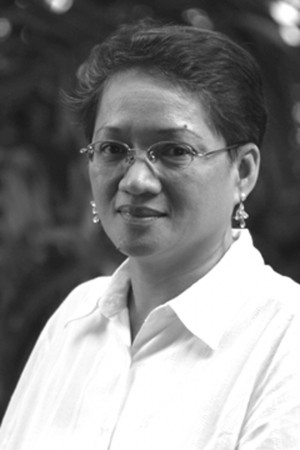
Malou Apalisok
Over ANC cable news channel yesterday, former Chief Justice (CJ) Hilario Davide, Jr. once again heaped praises on the 1987 Constitution even as he cautioned the administration against rushing to shift from the present unitary to a federal form of government.
As one of the members of the 1986 Constitutional Commission that drafted the 1987 Charter, CJ Davide practically leads the charge against any moves towards Charter Change.
CJ Davide’s strong arguments against the shift to federalization are valid because the supposed ills under the current system can be cured by simply introducing Charter amendments.
The implication is that if President Duterte were to use his huge political capital to make Congress to the reform line, the needed changes can be had without spending much government resources and engaging in bitter debates. However, this political scenario calls to mind the cliché, “easier said than done.”
For example, there is the oft-repeated lament of local government units over unjust allocation of the Internal Revenue Allotment (IRA).
As we know, under RA 7160 aka the Local Government Code (LGC), the national government provides LGUs with IRA generated from taxes collected by the local political subdivisions.
Sixty percent of taxes are funneled to the national government, leaving only 40% to the LGU. Correcting this uneven allocation to make the distribution 60-40 in favor of the LGU requires only amending RA 7160, but in reality no sitting President will allow this to happen for obvious reasons.
Another emotional issue that riles up federalist advocates is the failure of the current unitary system to eliminate political dynasties.
Article II of the Constitution or the Declaration of Principles and States Policies, Section 26 provides that, “The State shall guarantee equal access for public service and prohibit political dynasties as maybe defined by law.”
This provision has been in the legislative back burner for the past 31 years.
I wish Karen Davila had asked why the 1986 Constitutional Commission gave Congress the authority to operationalize the anti-dynasty law because clearly, Congress cannot act against itself. In other words, the state policy was doomed from the start.
On the other hand, the PDP-Laban draft federal charter has an anti-political provision which proposes that “relatives of incumbent politicians up to the 2nd degree of consanguinity shall be prohibited from running for public office in the territorial jurisdiction where the incumbent was elected.”
This provision covers the President and all elected officials including members of the Federal Assembly and Senate, regional government and local government units.
Simply put, the anti-political dynasty provision under the Federal Constitution is executory. But it all remains to be seen because the new Charter will pass through Congress before it is submitted in a referendum.
In any case, I think this is the “necessary predicate” that former Supreme Court Chief Justice Reynato Puno referred to when he said that political dynasties need to be “neutralized” ahead of the shift to the federal form of government because under the new charter, political dynasties are given sovereign powers in terms of writing, interpreting and implementing their own laws.
Political dynasties are a bane to our society.
There are strong links between the existence of dynasties and poverty, according to the 2015 report of the Asia Institute of Management (AIM) Policy Center.
Those with the most number of family members holding public offices have thrived in the poorest parts of the country according to the AIM study.
If I may add, political dynasties are also known to keep private armies who subvert democratic elections through violent acts.
Still, it would be foolish to believe that a Federal Constitution will come as a panacea and treat all the ills of the present system.
Even President Rodrigo Duterte will be the first to admit that because the unitary system has been embedded in our culture throughout our democratic life, going federal has its own pitfalls.
Chief of these would be putting the cart before the horse, to quote former 1986 Constitutional Commission member Florangel Rosario-Braid.
The cart is the federal form of government while the horse is the desired reform linked to a decentralized form of government. The important thing is for people to be engaged in Charter Change and listen to public debates.
Dr. Rosario Braid recommends the primer, “Debate on Federal Philippines, A Citizen’s Handbook.” I intend to pick up this important reference written by experts on governance.
Meanwhile, by citing the weaknesses of the fundamental law, the framers of the 1987 Constitution like CJ Hilario Davide, Jr. highlight the value of education and debate in the massive task of changing the Constitution.
At the very least, we will be restrained against rushing into uncharted territory, and that we need more time and thorough study.
Disclaimer: The comments uploaded on this site do not necessarily represent or reflect the views of management and owner of Cebudailynews. We reserve the right to exclude comments that we deem to be inconsistent with our editorial standards.
